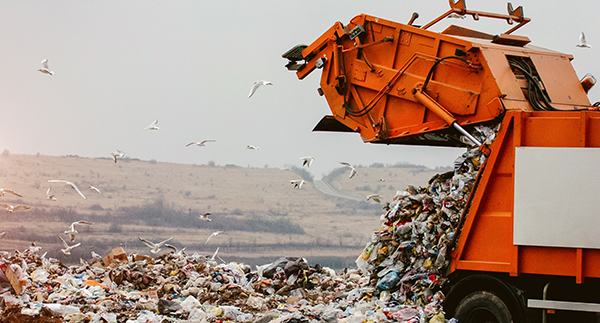No Time to Waste: Public-Private Partnerships, Greater Coordination Needed Now on Solid Waste Management

As the world's population grows and urbanizes, and standards of living increase, so does consumption of goods and services, producing more solid waste. Approximately 1.3 billion tons of municipal solid waste is generated each year globally, according to the World Bank Report “What a Waste.” This is expected to double by 2025.
The way we manage our waste will have an enormous impact on people's health, the environment, and national economies. Poorly managed waste not only has serious short- and long-term health impacts, but also contributes to climate change by increasing green-house gas. Beyond the health and environment issues, poorly managed waste contributes to additional government spending.
Don’t Dump – Convert Trash to Energy
The solution to manage waste is to treat it as a resource. Solid waste management systems (SWM) include the following four critical milestones: The collection, haulage, recovery, and disposal of waste. All four of these activities can be bid out separately or together to private entities. State and municipalities have the opportunity to structure these activities and ensure efficient and cost-effective SWM system implementation by providing technical and financial criteria in the concession agreements with the private entities.
In most countries in the northern hemisphere, waste management practices have led to more efficient uses of resources and lower environmental impacts. As an example, on average, the European Union member countries recover 60 percent of municipal solid waste and transform it in raw materials and energy. In contrast, most developing countries continue to have dump sites. They lack the political, technical, and financial wherewithal to convert these landfills into SWM projects.
Public and private entities and civil society should assume, in a cohesive voice, more responsibility for waste generation and disposal. Public-private partnerships can enable formalized risk sharing between the public and private entities and results in measurable improvements in efficiency and quality of service.
Tool Assesses Viability of Solid Waste Management Projects
At the 2017 International Solid Waste Association (ISWA) conference, Abt Global presented the Readiness Assessment tool for municipalities conducted on behalf of the U.S. Environmental Protection Agency (EPA) and Climate and Clean Air Coalition Municipal Solid Waste Initiative. This tool assesses both the level of policy and regulatory support for the project as well as the readiness of the projects’ risk assessment and risk mitigations, technical and financial plan. By addressing these answers, the tool seeks to ensure municipalities that a tender offer will attract investors and enable to access to finance for the project.
Lessons learned from countries that have switched their dump sites to effective waste management systems can help national and regional authorities make more informed policy-related and strategic decisions in determining the most efficient SWM system. Successful SWM prioritizes treatment type and determines measures needed to implement it while adapting to the regional and local context.
When governments decide to invest in new projects and new technologies, they must design its strategy not only structuring and issuing the bid, but also investing in the projects long term operation. Training local teams will provide expertise in operating and maintaining the project as well as monitoring and evaluating the positive social, economic and environmental impacts of the project.
